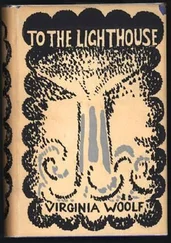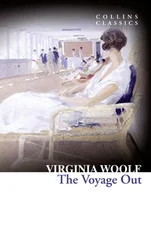Helen did not answer, and he continued:
“Of course I am, disgustingly bitter, and it’s a beastly thing to be. But the worst of me is that I’m so envious. I envy every one. I can’t endure people who do things better than I do—perfectly absurd things too—waiters balancing piles of plates—even Arthur, because Susan’s in love with him. I want people to like me, and they don’t. It’s partly my appearance, I expect,” he continued, “though it’s an absolute lie to say I’ve Jewish blood in me—as a matter of fact we’ve been in Norfolk, Hirst of Hirstbourne Hall, for three centuries at least. It must be awfully soothing to be like you—every one liking one at once.”
“I assure you they don’t,” Helen laughed.
“They do,” said Hirst with conviction. “In the first place, you’re the most beautiful woman I’ve ever seen; in the second, you have an exceptionally nice nature.”
If Hirst had looked at her instead of looking intently at his teacup he would have seen Helen blush, partly with pleasure, partly with an impulse of affection towards the young man who had seemed, and would seem again, so ugly and so limited. She pitied him, for she suspected that he suffered, and she was interested in him, for many of the things he said seemed to her true; she admired the morality of youth, and yet she felt imprisoned. As if her instinct were to escape to something brightly coloured and impersonal, which she could hold in her hands, she went into the house and returned with her embroidery. But he was not interested in her embroidery; he did not even look at it.
“About Miss Vinrace,” he began,—“oh, look here, do let’s be St. John and Helen, and Rachel and Terence—what’s she like? Does she reason, does she feel, or is she merely a kind of footstool?”
“Oh no,” said Helen, with great decision. From her observations at tea she was inclined to doubt whether Hirst was the person to educate Rachel. She had gradually come to be interested in her niece, and fond of her; she disliked some things about her very much, she was amused by others; but she felt her, on the whole, a live if unformed human being, experimental, and not always fortunate in her experiments, but with powers of some kind, and a capacity for feeling. Somewhere in the depths of her, too, she was bound to Rachel by the indestructible if inexplicable ties of sex. “She seems vague, but she’s a will of her own,” she said, as if in the interval she had run through her qualities.
The embroidery, which was a matter for thought, the design being difficult and the colours wanting consideration, brought lapses into the dialogue when she seemed to be engrossed in her skeins of silk, or, with head a little drawn back and eyes narrowed, considered the effect of the whole. Thus she merely said, “Um-m-m” to St. John’s next remark, “I shall ask her to go for a walk with me.”
Perhaps he resented this division of attention. He sat silent watching Helen closely.
“You’re absolutely happy,” he proclaimed at last.
“Yes?” Helen enquired, sticking in her needle.
“Marriage, I suppose,” said St. John.
“Yes,” said Helen, gently drawing her needle out.
“Children?” St. John enquired.
“Yes,” said Helen, sticking her needle in again. “I don’t know why I’m happy,” she suddenly laughed, looking him full in the face. There was a considerable pause.
“There’s an abyss between us,” said St. John. His voice sounded as if it issued from the depths of a cavern in the rocks. “You’re infinitely simpler than I am. Women always are, of course. That’s the difficulty. One never knows how a woman gets there. Supposing all the time you’re thinking, ‘Oh, what a morbid young man!’”
Helen sat and looked at him with her needle in her hand. From her position she saw his head in front of the dark pyramid of a magnolia-tree. With one foot raised on the rung of a chair, and her elbow out in the attitude for sewing, her own figure possessed the sublimity of a woman’s of the early world, spinning the thread of fate—the sublimity possessed by many women of the present day who fall into the attitude required by scrubbing or sewing. St. John looked at her.
“I suppose you’ve never paid any a compliment in the course of your life,” he said irrelevantly.
“I spoil Ridley rather,” Helen considered.
“I’m going to ask you point blank—do you like me?”
After a certain pause, she replied, “Yes, certainly.”
“Thank God!” he exclaimed. “That’s one mercy. You see,” he continued with emotion, “I’d rather you liked me than any one I’ve ever met.”
“What about the five philosophers?” said Helen, with a laugh, stitching firmly and swiftly at her canvas. “I wish you’d describe them.”
Hirst had no particular wish to describe them, but when he began to consider them he found himself soothed and strengthened. Far away to the other side of the world as they were, in smoky rooms, and grey medieval courts, they appeared remarkable figures, free-spoken men with whom one could be at ease; incomparably more subtle in emotion than the people here. They gave him, certainly, what no woman could give him, not Helen even. Warming at the thought of them, he went on to lay his case before Mrs. Ambrose. Should he stay on at Cambridge or should he go to the Bar? One day he thought one thing, another day another. Helen listened attentively. At last, without any preface, she pronounced her decision.
“Leave Cambridge and go to the Bar,” she said. He pressed her for her reasons.
“I think you’d enjoy London more,” she said. It did not seem a very subtle reason, but she appeared to think it sufficient. She looked at him against the background of flowering magnolia. There was something curious in the sight. Perhaps it was that the heavy wax-like flowers were so smooth and inarticulate, and his face—he had thrown his hat away, his hair was rumpled, he held his eye-glasses in his hand, so that a red mark appeared on either side of his nose—was so worried and garrulous. It was a beautiful bush, spreading very widely, and all the time she had sat there talking she had been noticing the patches of shade and the shape of the leaves, and the way the great white flowers sat in the midst of the green. She had noticed it half-consciously, nevertheless the pattern had become part of their talk. She laid down her sewing, and began to walk up and down the garden, and Hirst rose too and paced by her side. He was rather disturbed, uncomfortable, and full of thought. Neither of them spoke.
The sun was beginning to go down, and a change had come over the mountains, as if they were robbed of their earthly substance, and composed merely of intense blue mist. Long thin clouds of flamingo red, with edges like the edges of curled ostrich feathers, lay up and down the sky at different altitudes. The roofs of the town seemed to have sunk lower than usual; the cypresses appeared very black between the roofs, and the roofs themselves were brown and white. As usual in the evening, single cries and single bells became audible rising from beneath.
St. John stopped suddenly.
“Well, you must take the responsibility,” he said. “I’ve made up my mind; I shall go to the Bar.”
His words were very serious, almost emotional; they recalled Helen after a second’s hesitation.
“I’m sure you’re right,” she said warmly, and shook the hand he held out. “You’ll be a great man, I’m certain.”
Then, as if to make him look at the scene, she swept her hand round the immense circumference of the view. From the sea, over the roofs of the town, across the crests of the mountains, over the river and the plain, and again across the crests of the mountains it swept until it reached the villa, the garden, the magnolia-tree, and the figures of Hirst and herself standing together, when it dropped to her side.
Читать дальше












